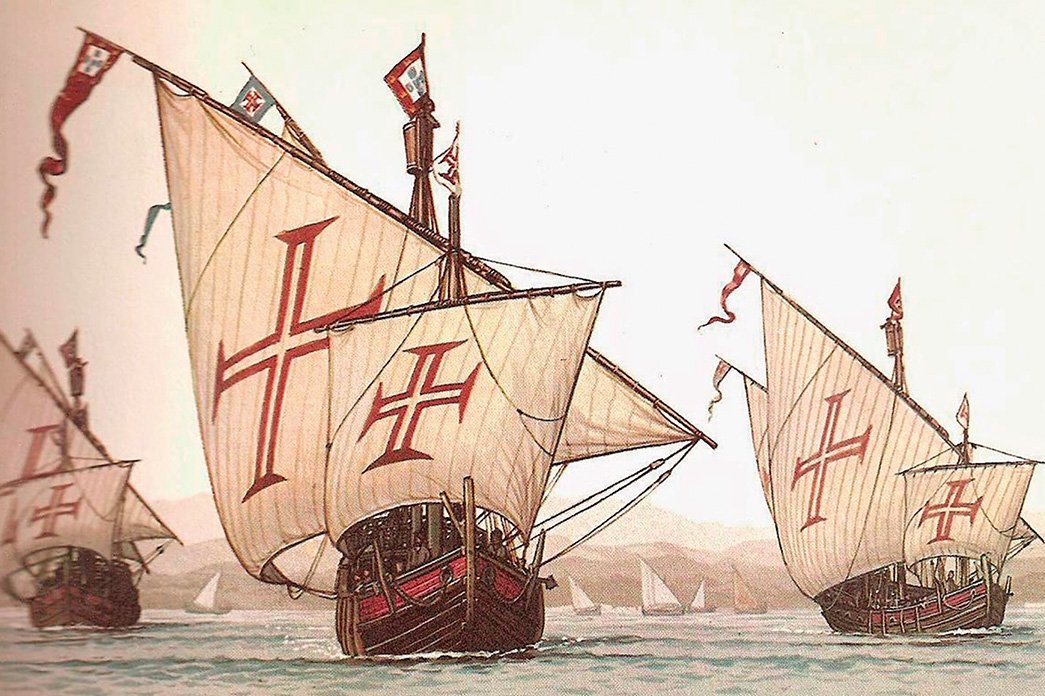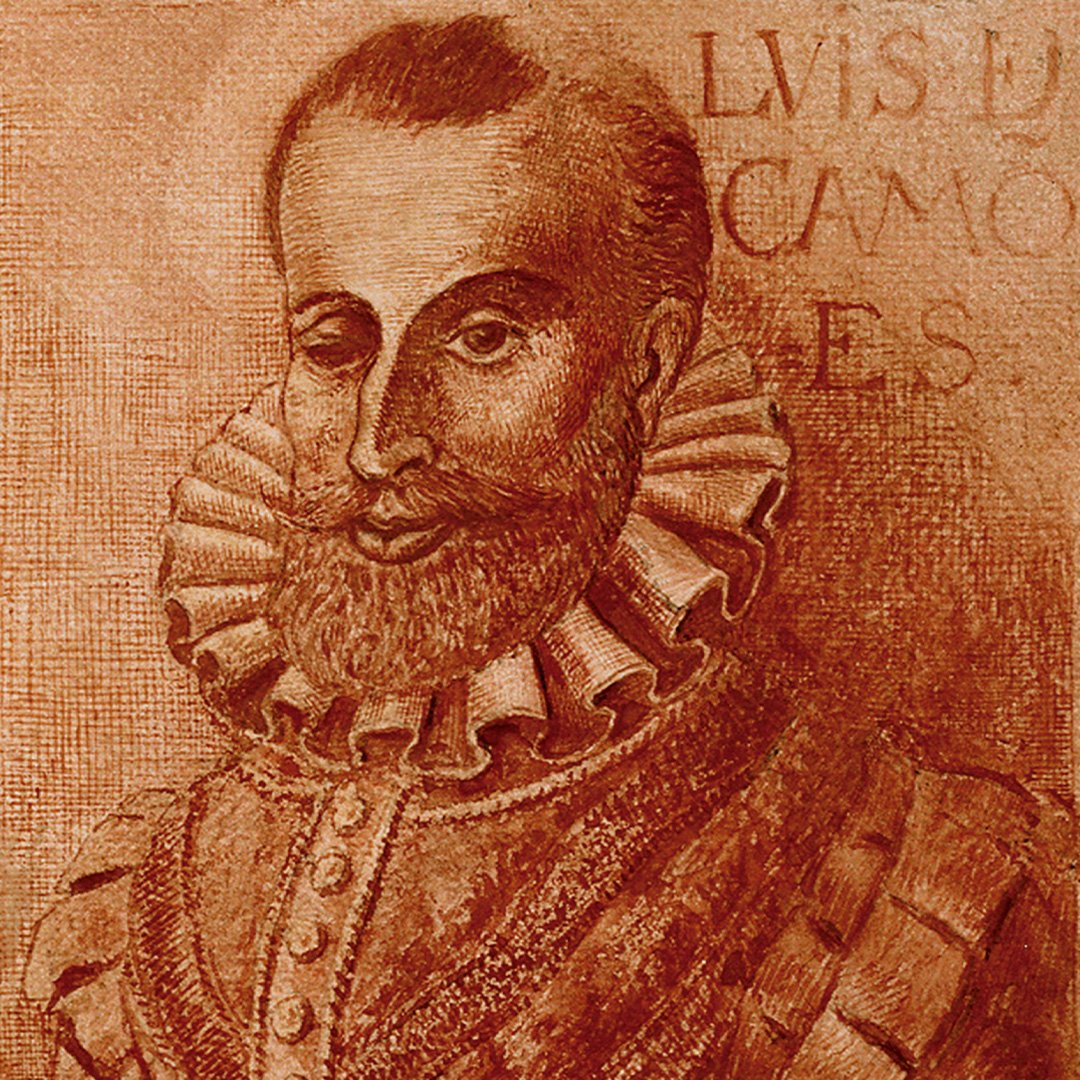There are many nations that see themselves in their great poets, like the English with Shakespeare, the Germans with Goethe, the Italians with Dante and the French with Molière. But you could almost say that no one sees themselves as much as the Portuguese do, in their great poet Camões. Luís Vaz de Camões is the greatest chronicler of Lusitanian glories and, over time, his work OsLusíadas (The Lusiads) has come to be seen as a reflection of the Portuguese people. Of national and universal interest, the epic describes the era that deconstructed and redefined the world: the Discoveries. It was necessary to immortalise them, and that is what was done, starting with the adventures of Vasco da Gama during the discovery of the sea route to India.
Half a millennium after the poet’s birth, the feats he accomplished in his lifetime continue to be celebrated. His sonnets span the centuries and his words continue to influence authors from different generations. With one eye open and the other closed by the trials of war, his universal images appear to us in puffed breeches, red hair, laurels on his head and ruffled collars, ready to give his verses to the world, to the Portuguese-speaking countries, to the Portugal that is sometimes organised, sometimes disorganised, sometimes ambitious, sometimes slovenly. Little is known about the life of Luís Vaz de Camões, but it is almost unanimous that he was born in 1524. The city where he was born is unknown, but he grew up in a family of minor nobility. His writing and cultural references show that he had a classical and formal education. We know about his bohemian life, the nights he spent in brothels and the paltry pension he received from India. He was imprisoned at least twice and served in the military, with the battle at Ceuta costing him half his sight. The year of his death is uncertain, but it is thought to be 1579, as a consequence of the plague. He had no heirs and left no estate. He died poor, unrecognised, as a misunderstood and forgotten genius, and it wasn’t until several years later that he was acknowledged.












